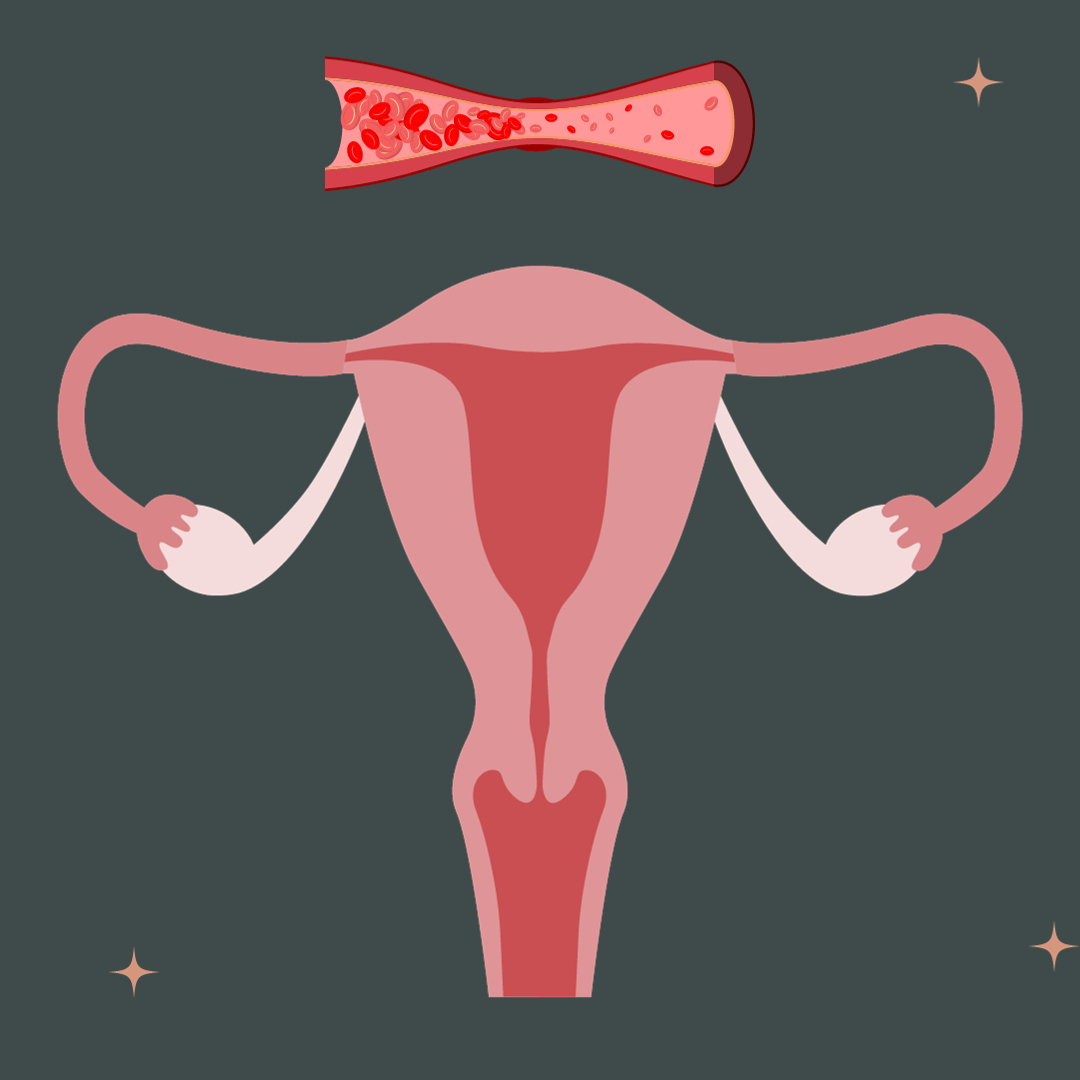Pelvic Congestion Syndrome: Symptoms, Treatment, and Connection to Fibroids
Pelvic congestion syndrome (PCS) is a medical condition that often remains shrouded in obscurity, overshadowed by more common pelvic disorders such as fibroids. However, it’s important to understand PCS because it shares similarities with fibroids and can have a significant impact on your quality of life.
What is pelvic congestion syndrome?
Pelvic Congestion Syndrome (PCS) is a condition that primarily affects women of childbearing age and is more common in those who have given birth to multiple children. This condition is believed to stem from issues within the veins in the pelvic region.
Veins are responsible for carrying blood back to the heart. In some cases, the veins in the lower abdomen may not function properly, leading to a buildup of blood inside these veins. Consequently, the veins in the pelvis enlarge and change shape, resembling varicose veins. These changes in the veins can give rise to the hallmark symptom of PCS: chronic pelvic pain and a range of associated symptoms.
Pelvic Congestion Syndrome Symptoms
PCS is characterized by a range of distressing symptoms, with chronic pelvic pain being the most prominent. This pain is often described as a persistent, dull, and aching discomfort in the lower abdomen. Importantly, it tends to worsen with prolonged periods of sitting or standing and may offer some relief when lying down. Other common symptoms include a sensation of fullness or heaviness in the pelvic area, pain or discomfort during sexual intercourse (dyspareunia), and the development of visible varicose veins on the skin's surface in the pelvic region.
The Menstrual Link
Hormonal fluctuations, particularly during the menstrual cycle, can play a significant role in PCS. Many women with PCS report worse symptoms during their menstrual periods, as hormonal changes can further contribute to venous congestion and pelvic discomfort.
Connections to Fibroids
While PCS and fibroids are distinct conditions, they also share similarities. Both PCS and fibroids can cause abnormal blood flow in the pelvic area, hormonal influences, and chronic pelvic discomfort. Notably, individuals with fibroids may be more susceptible to developing PCS due to these common factors and the overlap in symptoms.
Diagnosis and Treatment
Diagnosing PCS can be challenging because its symptoms often overlap with other pelvic conditions. Diagnostic techniques such as pelvic ultrasound, magnetic resonance imaging (MRI), and venography can help confirm its presence.
When it comes to treating PCS, a multifaceted approach is often necessary. Some of the primary treatment options available include
Lifestyle Modifications: Patients are advised to make lifestyle changes to alleviate symptoms. These include avoiding prolonged standing or sitting, maintaining a healthy weight, and wearing compression stockings.
Medication: Nonsteroidal anti-inflammatory drugs (NSAIDs) can help manage pain and discomfort associated with PCS. Hormonal therapies, such as birth control pills, may also be prescribed to regulate hormonal fluctuations that exacerbate symptoms.
Minimally Invasive Procedures: Interventional radiologists may perform minimally invasive procedures to address PCS. Embolization, a commonly used technique, involves blocking off the enlarged veins that are causing congestion.
Surgical Intervention: In severe cases or when other treatments are ineffective, surgical options like ovarian vein ligation or removal of the ovarian veins may be considered.
Can You Die From Pelvic Congestion Syndrome?
PCS is generally not life-threatening. However, it can significantly impact your quality of life due to the chronic pain and discomfort it causes. It's essential to seek medical attention for PCS to manage symptoms effectively and prevent complications such as blood clots or chronic pelvic pain syndrome.
In contrast, non-cancerous fibroids can sometimes lead to severe health complications, such as anemia or fertility issues. Although extremely rare, complications from untreated fibroids can potentially pose a life-threatening risk.
Remember that PCS and fibroids, although different, are treatable conditions. Seeking professional guidance is the first step towards finding relief from the chronic pelvic discomfort associated with PCS and understanding any potential connections to other pelvic health issues. Don't hesitate to contact your healthcare provider for assistance and support.
Want to know everything going on in women’s health? Follow along on Instagram and Facebook.



